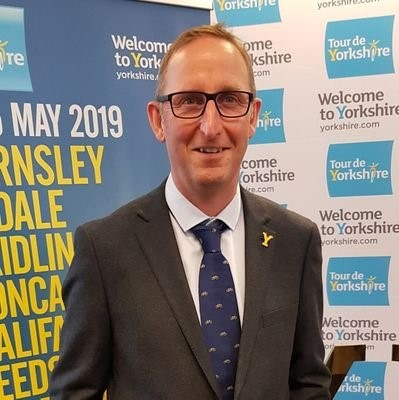BLOG: Maximising the local impact of major sporting events
Posted: Wed, 21 Sep 2022 15:47
Andy Maddox (Strategic Lead, Get Doncaster Moving) explains in his recent blog for Sport England, how preparation and planning helped Doncaster make the most of big sporting events and boost grassroots organisations.
I write this blog after a summer that saw a home Commonwealth Games and while we're still basking in the glory of the Lionesses winning the Euros at Wembley.
These major events bring together a nation in spirit and mind and talk of legacy. However, if not directly involved, it can seem distant and difficult for clubs and community groups to capture the benefits.
Since 2016, we in Doncaster have been working with Sport England to test ways of maximising the social impact of the major events.
We have hosted events including the Tour de Yorkshire (TDY), UCI Road World Championships and this October's Rugby League World Cup. Most recently, we have supported the Club Matters team by sharing some hints and tips to help them develop their 'Making the most of major sports events' document.
Tactics and actions
This blog highlights a handful of tactics and actions we have developed in Doncaster to help grassroots organisations get involved in making the most of major sports events, and it will give you the feel of what can be achieved with prior planning.
What we have learnt is that events can truly bring communities together and allow those not engaged in your clubs, groups, or sport to become so.
The starting point for this journey is to reflect what you have to offer in your club or group. This may be through yours, or access to others', facilities, the interest and capacity of your people, the activities you offer, or simply how you can engage the widest possible audience.
A significant moment in what changed the council's approach to major events, is what I call the 'tea and loo' moment. In our first hosting of the TDY, we found that the over 70s wanted to watch the event but couldn't, as there were no facilities along the race route to help them enjoy the experience.
From surveys we undertook we found that this audience wanted somewhere to rest prior to the race, a cup of tea, and easy access to a toilet. This information taught us to think differently in our planning and try to put ourselves in the shoes of those individuals who may not already be engaged or excited about the event or sport.
Since 2016, we in Doncaster have been working with Sport England to test ways of maximising the social impact of the major events.
For our second hosting in 2018, we supported community and sports clubs to open their facilities along the route and invite the community in.
This enabled us to build numerous 'mini fan zones' to watch the race on tv, and live as it passed by, and also helped organisations reach new audiences.
Many of them are still hosting coffee mornings to bring the elderly together in their community as a result of the original event.
Key things to consider
Getting involved however, does not happen overnight and you will need to plan and prepare well before the event to maximise the impact.
Try making this as seamless as possible and remove what we call 'sludge'.
Sludge is anything that makes accessing your club or activities hard, or is a potential barrier for people to take part.
This can be as simple as contact numbers not being updated on your website, or promotional material using very technical language that is difficult to understand.
Organisations will also need to be prepared for the anticipated influx of new members, and this will require you to plan months ahead.
Many of these large events are planned for years in advance, so get involved in discussions early as you will need to replicate this.
Think about:
- training and developing volunteers ahead of the event
- how you organise introductory sessions - think about giving free tasters
- having a welcoming face to meet and greet new participants and members.
The hardest step for someone coming to an activity for the first time is the first step, and you need to make this as easy as possible.
As council officers, we need to consider our role in this process, plan alongside our community clubs and groups and, where possible, fund the training of volunteers and release other resources to help grassroots organisations.
For example, in Doncaster we developed a very simple micro grants scheme that enabled us to support 33 groups (11,000 people), many of which were previously not engaged, and help them engage in TDY and UCI Road World Championships.
To help clubs, professionals, and event organisers, Get Doncaster Moving are just about to launch the GAMEPLAN book, which brings all our learnings into one easy-to-use guide.
Find out more, including all our research visit our website pages:





